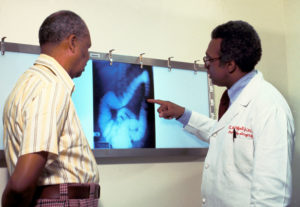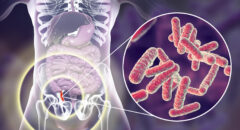
If you’re prone to grab a drink loaded with sugar, you may want to think twice. Sugary drinks can lead to a lot of health complications including high blood pressure, inflammation, weight gain and diabetes. Now experts are saying they are directly linked to colon cancer in young women.
A recent study found that women who drunk at least two sugar-sweetened beverages a day had double the risk of developing colon cancer before the age of 50.
The study, which began in 1989, surveyed over 95,000 nurses ranging from the ages of 25 through 42. After 24 years of research and collecting information on their diets, the study found that 109 women of 116,500 patients developed colon cancer before turning 50. Those numbers may be small, but the issue lies within the fact that if you consume large amounts of sugar earlier in life, it will have a major impact on your health further down the road.
For women who are at a higher risk of developing colon cancer or who have a family history, their chances increased if they consumed a lot of sugary drinks during their teen years.
Women, who consumed sugary drinks in adulthood, have a 16 percent higher risk per daily serving of developing colon cancer before 50. Each drink was linked to a 32 percent increase for women who consumed when they were 13 to 18 years old.
While it’s not clear if sugary drinks are the exact reason the women developed colon cancer, it’s clear that sugary drinks should be a cause for concern.
People that consume a large number of sugary beverages are at a higher risk of becoming overweight, obese or developing type 2 diabetes. All are a risk for early-onset colon cancer. High-fructose corn syrup found in many sugary drinks also promotes the development of colon cancer.
Although this study was done on mostly White women, this should be a cause of concern for Black women as well. Black people are 20 percent more likely to be diagnosed with colon cancer than any other racial group and 40 percent more likely to die from it once diagnosed.








